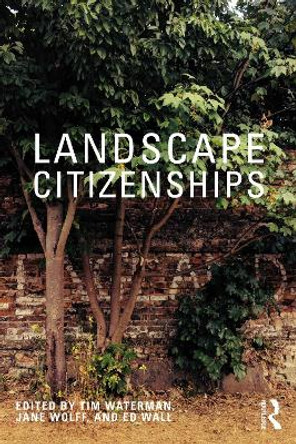Description
A collection of short interludes, think pieces, and critical essays on landscape, utopia, philosophy, culture, and food, all written in a highly original and engaging style by academic and theorist Tim Waterman.
Exploring power and democracy, and their shaping of public space and public life, taste, etiquette, belief and ritual, and foodways in community and civic life, the book provides a much-needed critical approach to landscape imaginaries. It discusses landscape in its broadest sense, as a descriptor of the relationship between people and place that occurs everywhere on land, from cities to countryside, suburb to wilderness.
With over fifty black and white illustrations interspersing the twenty-six chapters, this is a book for professionals, academics, and students to dive into and spark discussion on new modes of thinking in the wake of unfolding global crises, such as COVID-19, climate change, fascism 2.0, and beyond.
About the Author
Tim Waterman is Associate Professor of Landscape Theory at the Bartlett School of Architecture, UCL, UK. His research explores the interconnections between food, taste, place, and democratic civil society. His research addresses imaginaries: moral, political, social, ecological, radical, and utopian.
Reviews
"This collection, like all Tim Waterman's work, is a delight. He combines reflections on the relationship between place, space and social process with a drive towards imagining better lives and the conditions that might generate them - thus towards utopia. The varied pieces, written with elegance and grace, are thought-provoking, engaging and at times deeply moving." - Ruth Levitas, author, Utopia as Method, Professor Emerita, School of Sociology, Politics and International Studies, University of Bristol, UK
"The Landscape of Utopia delivers a rich new contribution to utopian theory and lively reflections and meditations on what it means to think and practice better ways of living and being in very particular places. Tim finds utopian promise and provocation in practice and imagination; what is and what might be; the ordinary and the fantastic. With its extensive range of reference, sociological curiosity, agile thinking and inviting prose, the book returns us refreshed to familiar landscapes and invites us to keep hold of transgressive hope for changing them." - Lisa Garforth, author, Green Utopias, Senior Lecturer in Sociology, Newcastle University, UK
"Intelligent and perceptive, Waterman draws on local stories from a wide range of places and times, weaving the narrative in and out of the subject, landscape, with insight and humour. The book is timely because it comes at a point when the discourse on 'landscape' is expanding, gaining interest by scholars and professionals across disciplines to address global concerns, climate change, cultural heritage, food security and issues of identity. Many of these concerns are addressed in the 26 chapters, some a single paragraph and others several pages, a statement, a reflection and food for thought. Waterman keeps his citation to a minimum, introducing key landscape scholars in an offhand manner to pique the reader and avoid the 'stuffiness' of academic writing. The fresh narrative of 'landscape' will be of interest to non-academics, architects and landscape architects, anyone interested in the environment, culture and shifting world politics and how they affect popular taste and ordinary citizens." - Jala Makhzoumi, editor of The Right to Landscape, Adjunct Professor of Landscape Architecture, American University of Beirut, President, Lebanese Landscape Association, Lebanon
Book Information
ISBN 9780367759155
Author Tim Waterman
Format Paperback
Page Count 218
Imprint Routledge
Publisher Taylor & Francis Ltd
Weight(grams) 360g






